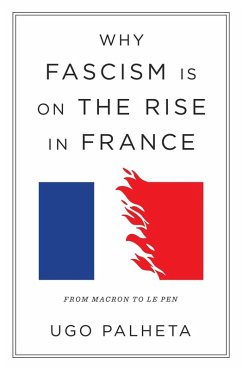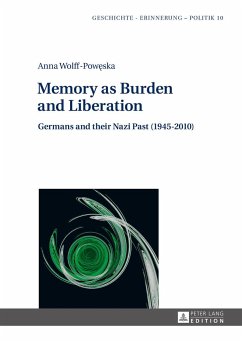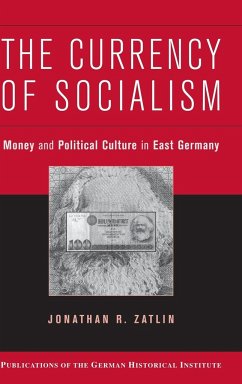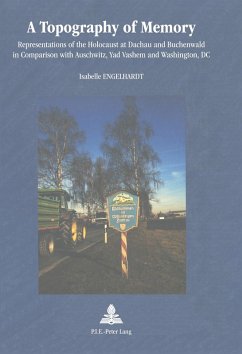
Antifascism and Memory in East Germany
Remembering the International Brigades 1945-1989
Versandkostenfrei!
Versandfertig in 1-2 Wochen
225,99 €
inkl. MwSt.

PAYBACK Punkte
113 °P sammeln!
AntiFascism and Memory in East Germany is a book about remembering and about forgetting, about war, and about the peace which eventually followed. In the unlikely setting of the German Democratic Republic (GDR), the Spanish Civil War became the subject of a debate which both predated and outlasted the Cold War, involving historians, veterans, politicains, censors, artists, writers, and Church activists. Examining these multiple memories and interpretationsof Spain casts new and unexpected light on the legacy of the Spanish Civil War, and the relationship between history and memory under state ...
AntiFascism and Memory in East Germany is a book about remembering and about forgetting, about war, and about the peace which eventually followed. In the unlikely setting of the German Democratic Republic (GDR), the Spanish Civil War became the subject of a debate which both predated and outlasted the Cold War, involving historians, veterans, politicains, censors, artists, writers, and Church activists. Examining these multiple memories and interpretations
of Spain casts new and unexpected light on the legacy of the Spanish Civil War, and the relationship between history and memory under state socialism.
The ruling Socialist Unity Party made full use of the antifascist legacy as legitimation for a non-democratic state. But despite dogged attempts at control and censorship, the state was unable to silence competing voices. All over East Germany, International Brigade veterans preserved their version of events - in letters to each other, in communications with the party, in discussions with friends and family around the kitchen table, and in memoirs written for the 'desk drawer'. For younger East
Germans, the war retained an undeniably romantic aura. From their perspective, Spain was a far-away land to which they were forbidden to travel, the stuff of camp-fire singalongs and fantasies of adventure.
This book dissects the relationship between state-sponsored history, the lobbying of veterans, cultural interpretations of war, and the memory traces left behind by marginalised or politically oppositional groups and individuals. It is a cultural history of memory under state socialism, a social history of veteran groups and their relationship with the state, and a political history of communist culture. Above all, it is the story of how post-war Europeans came to terms with the heavy burden of
their pre-war past.
of Spain casts new and unexpected light on the legacy of the Spanish Civil War, and the relationship between history and memory under state socialism.
The ruling Socialist Unity Party made full use of the antifascist legacy as legitimation for a non-democratic state. But despite dogged attempts at control and censorship, the state was unable to silence competing voices. All over East Germany, International Brigade veterans preserved their version of events - in letters to each other, in communications with the party, in discussions with friends and family around the kitchen table, and in memoirs written for the 'desk drawer'. For younger East
Germans, the war retained an undeniably romantic aura. From their perspective, Spain was a far-away land to which they were forbidden to travel, the stuff of camp-fire singalongs and fantasies of adventure.
This book dissects the relationship between state-sponsored history, the lobbying of veterans, cultural interpretations of war, and the memory traces left behind by marginalised or politically oppositional groups and individuals. It is a cultural history of memory under state socialism, a social history of veteran groups and their relationship with the state, and a political history of communist culture. Above all, it is the story of how post-war Europeans came to terms with the heavy burden of
their pre-war past.












